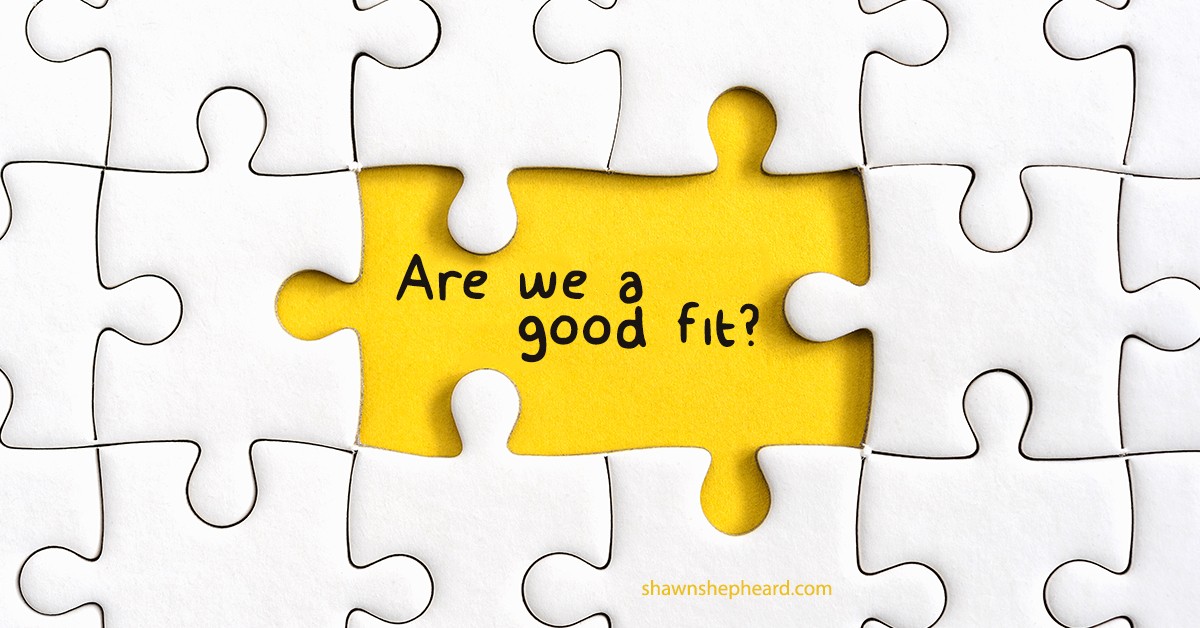I want to tell you about two wildly different phone calls, each of them having taken place within the last three weeks.
Phone call No. 1 was from a major multi-national corporation. They were interested in having me do a presentation within the scope of their global leadership initiative, a program they had been running for about two years. On paper, it sounded fantastic.
I started off the meeting with the leader of the initiative by asking with: “Before we talk about me being involved, can I ask you a few questions?”
1) What does success look like in the program you are running?
2) How do you measure success?
3) If this program is a success, how are people acting differently?
The reason I ask these questions (or a variation of them) at the onset of any potential client relationship is two-fold: I want to get a sense of where they are with respect to their vision, and I want to be able to measure their progress. I have no interest in one-off gigs with any follow-up or behavioural change.
This time, there was silence on the other end of the line (or, rather, the other end of the Zoom call.) After a moment, she said: “Those are really good questions.”
“Thank you,” I replied, and waited, patiently.
As the call progressed, it became clear that these were not questions the company had considered before, or at least, they weren’t prepared to answer them. At the end of the call, I was told they would need to check on the budget before anything else could happen. In that moment, I knew in my heart that I would not be proceeding with this client.
I knew this for two reasons:
1) They weren’t serious. If they had indeed been running this program successfully for two years, these types of questions should already have been on their radar.
2) They weren’t being honest. I had seen their quarterly earnings (anyone could.) I knew there was money in the budget. In other words: don’t lie to me.
So I responded with thanks, but not interested.
Phone call No. 2 was from someone I’d never met before, a gentleman who owned a small family business. He started off the call by telling me he knew one of my other clients. Someone who he has a great respect for, both personally and professionally.
“If you work with him on that level, I want you on my team,” he said.
“Well,” I replied. “Can I ask you some questions first?”
In the conversation that followed, this individual was extremely honest about some of his biggest challenges and struggles, as well as his goals and dreams. He also shared that he couldn’t do this alone, that he needed help, and he wanted to know: when could we start working together?
I suggested we slow down for a minute, schedule another call to really iron out his goals, and then decide from there if we were a good fit. In the meantime, I recommended he reach out to that special client of mine and for his honest feedback on working with me.
This gentleman was floored.
“Wow,” he said, with a chuckle. “I had my credit card ready to go.”
Reflecting on these two phone calls, it’s clear which one came from “my kind of person” – the kind of person I’m meant to serve. This small business owner was honest with me from the very start. Unlike the first caller, he wasn’t playing any games. There was no swimming upstream on my part, no exhausting myself trying to convince someone who wasn’t going to come around to my way of thinking, anyway. I vowed to stop doing that kind of thing years ago, and I have no plans to go back.
Nowadays, when people ask me who my “ideal client” is, I don’t think about target markets or industries. I think about the characteristics of the people I love working with, who love working with me. These people:
1) …have a bias for action. There are people who talk and people who do. These people do both.
2) …have the courage to ask for help. They know they can’t do everything on their own, and they aren’t afraid to say so.
3) …continually invest in themselves. They invest in their future vision, be it via coaching or other programs.
4) …have a vision for the future. They might not be totally clear on how to realize that vision, but the vision is there.
5) …have a growth mindset. These individuals are either business owners or they act like business owners.
6) …don’t take themselves too seriously. They like to have fun and know how to laugh at themselves.
My ideal client is someone who embodies these six characteristics, and these two phone calls were a great reminder of this. One call hit all six. The other hit zero. I think it’s obvious which is which.
These calls also served as an excellent reminder of why I work on an invite- and referral-only basis. I have found that a lot of consultants are worried about going “too narrow” in terms of the services they provide and the clientele they choose to serve, but in my experience, it’s been the best decision I ever could have made for my business.
Think about it this way: would you rather go to a big, brand-name hotel with 600 rooms, where you’re one of 600 anonymous guests? Or would you rather go to a small, intimate, boutique hotel or bed & breakfast where they know your name, they care about you, and they make sure you know it? I like to see myself as a boutique hotel. Interested in making a reservation? Give me a call and we’ll talk.
